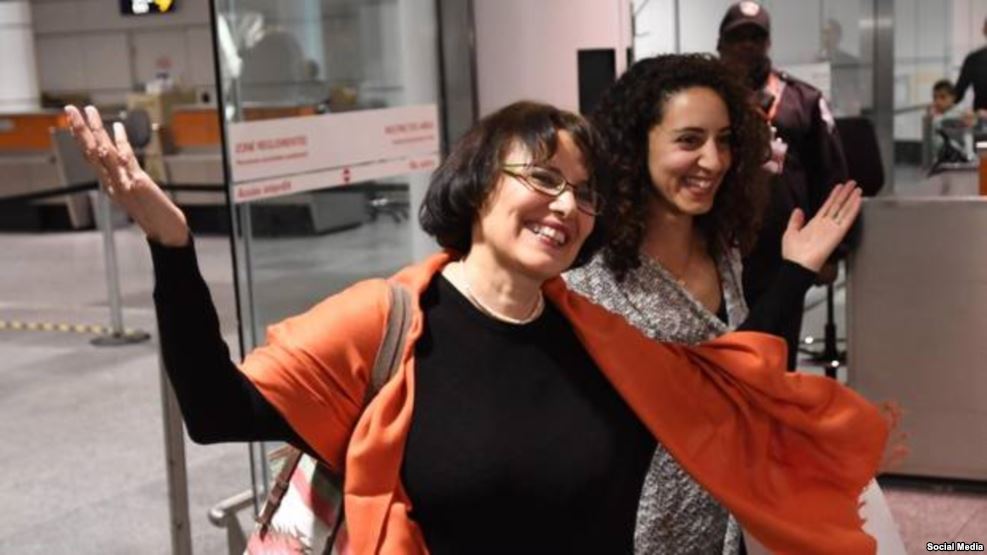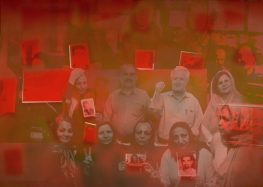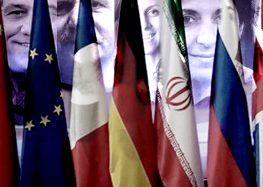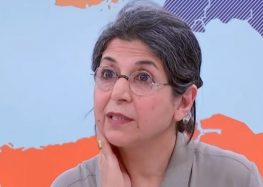Iran Says It Released Homa Hoodfar for “Humanitarian” Reasons

Other Ailing Dual Nationals Remain in Prison while Denied Due Process
“I didn’t feel I would be released until I was on the jet. In Iran, nothing is complete until it is complete,” said Iranian-Canadian dual national and academic Homa Hoodfar on September 26, 2016 after landing at Montréal–Pierre Elliott Trudeau International Airport following her release from Evin Prison where she was held since June 2016. “As they say in Iran, nothing is possible and everything is possible.”
According to Iran’s Foreign Ministry Spokesman Bahram Qasem, Hoodfar, 65—detained since June 6 for undisclosed “security” charges—was released under “humanitarian grounds, including for medical reasons” on September 29 and flown to Canada, where she resides, via Oman.
Other dual nationals, including Baquer Namazi, the 76-year-old father of detained Iranian-American Siamak Namazi, and Nazanin Zaghari-Ratcliffe, a British-Iranian citizen and mother of a two-year old child, remain imprisoned in Iran with health problems while being prevented from posting bail.
On March 9, 2016, two days before the end of Hoodfar’s visit to Iran to see her relatives and carry out research on Iranian women, agents of the Revolutionary Guards raided her home in Tehran, confiscated her personal belongings, and told her she was not allowed to leave the country. She was subsequently questioned several times by the Revolutionary Guards’ Intelligence Organization, which finally arrested her on June 6.
During her detainment, Hoodfar’s family frequently expressed concern about her health, especially because she had suffered a stroke shortly before her arrest. In late July she was transferred to the hospital after her condition deteriorated. “She was very disoriented, severely weakened, and could hardly walk or talk” before being hospitalized, Hoodfar’s family said in a statement on September 1.
Following Hoodfar’s release, both the Judiciary’s Spokesman Gholamhossein Mohseni Ejei as well as Tehran Prosecutor Abbas Jafari Dolatabadi claimed she could have be freed sooner if the bail amount had been paid sooner, but Hoodfar’s family maintain they paid the bail amount promptly.
“The bail set for Ms. Homa Hoodfar was 150 million tomans ($48,000 USD), but it was later increased to 500 million tomans ($160,000 USD),” Ejei told reporters on September 28, 2016—two days after Hoodfar’s arrest. “Obviously, it takes time to gather 500 million tomans, and when it was finally paid, she was released.”
Ejei did not specify the charges against Hoodfar nor provide a date for her trial. On June 24 Dolatabadi had said that Hoodfar’s charges involved “feminist and security issues.”
At the airport in Montreal, Hoodfar, an expert on gender and development in Islam, thanked the Canadian government for pushing for her release, and thanked officials in Iran and Oman.
“It’s wonderful to be home,” she told reporters. “I’ve had a bitter seven months, and the detention has left me weak and tired.”
Bagher Namazi, Siamak Namazi, Nazanin Zaghari Ratcliffe, Robin Reza Shahini, and Kamal Foroughi, a 77-year-old Iranian-British man held since May 2011, are among the dual nationals who are currently languishing in Iran’s prisons without access to due process after being arrested by the Revolutionary Guards’ Intelligence Organization.
During a recent trip with President Hassan Rouhani to the United Nations General Assembly in New York, Iranian Foreign Minister Javad Zarif blamed the Judiciary for arresting dual nationals.
“This is a Judiciary—no president has anything to do with it,” he said on September 23 at a talk hosted by the Council on Foreign Relations.






